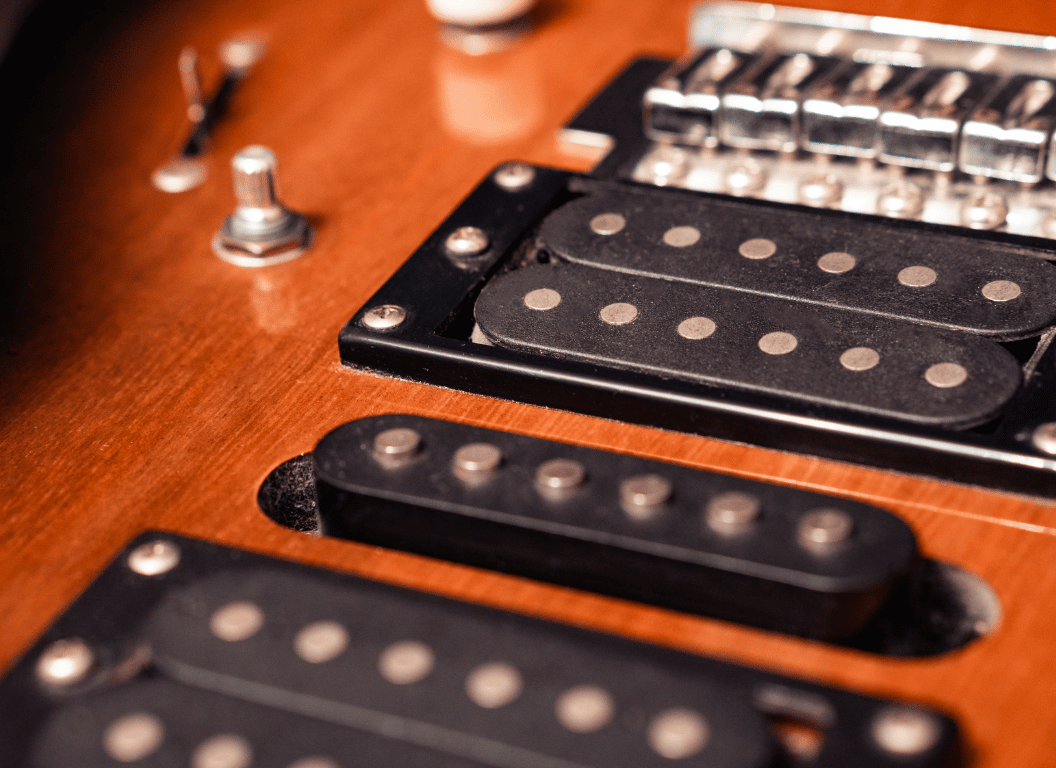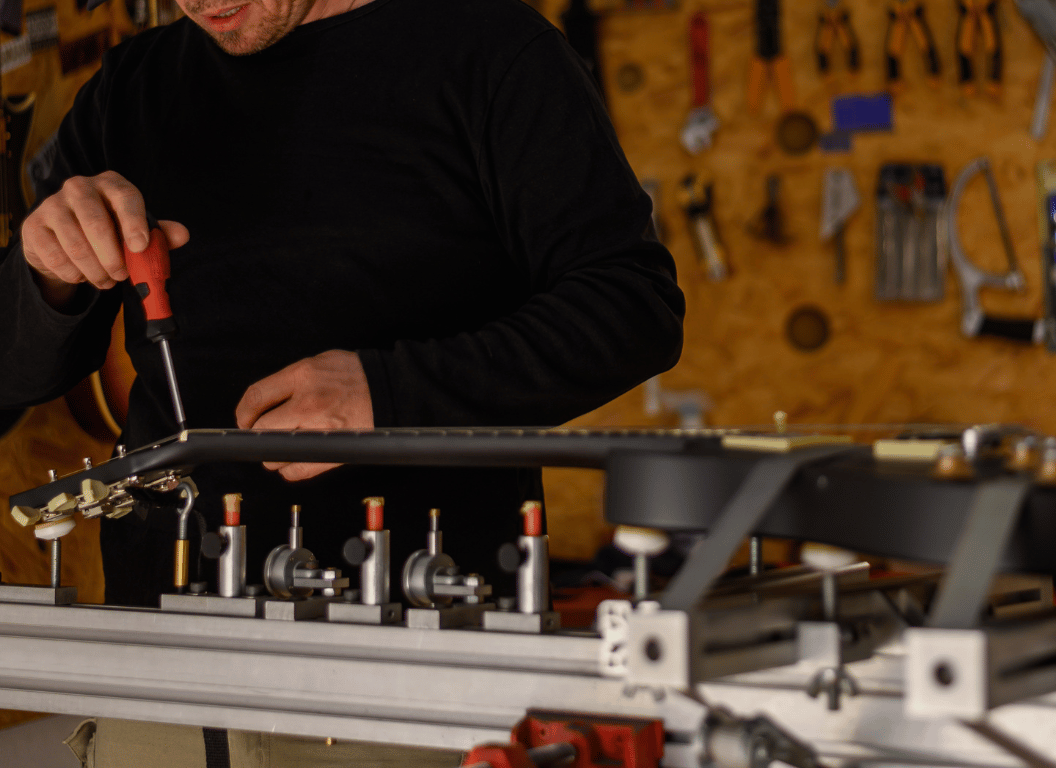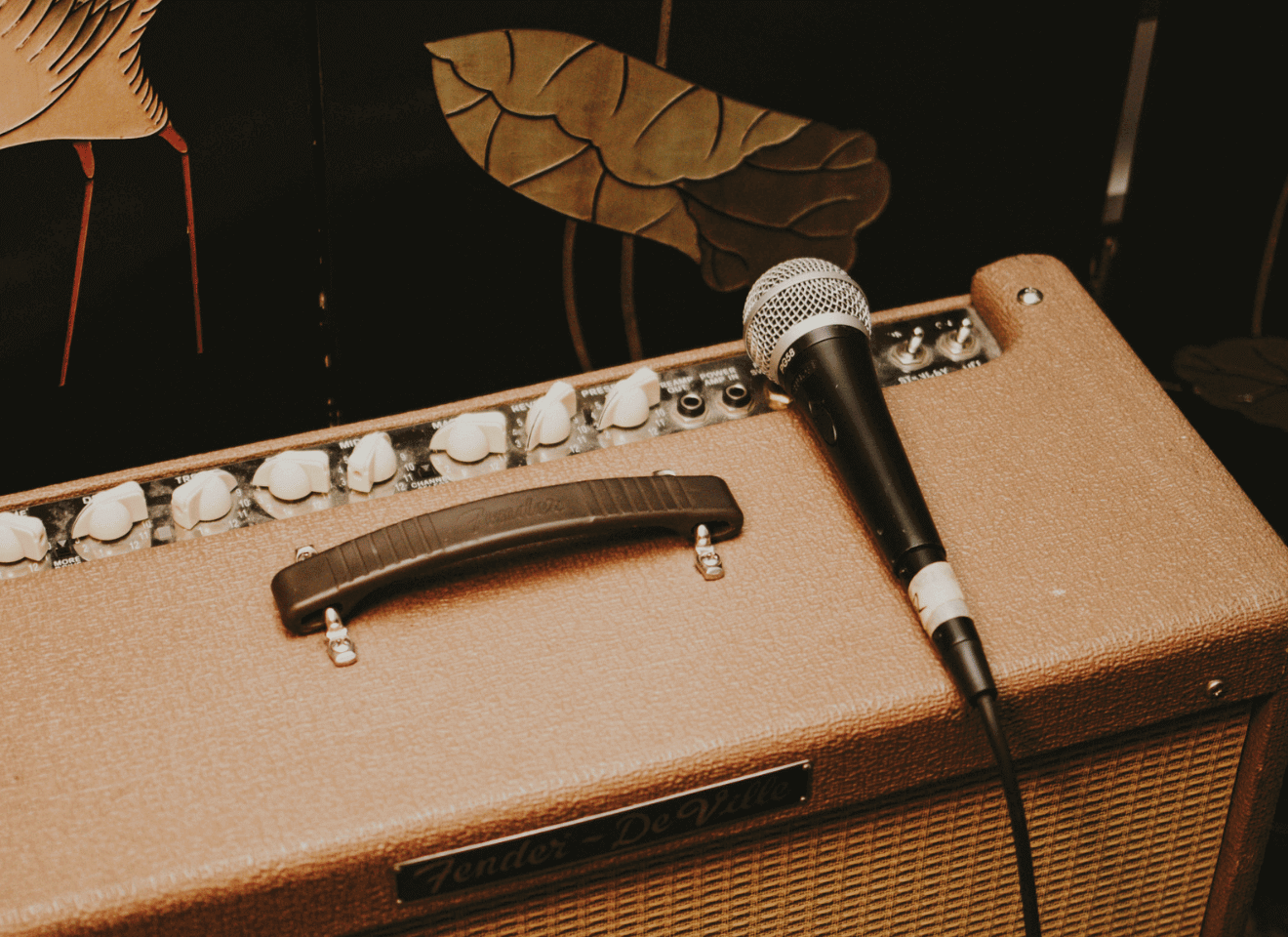Guitar enthusiasts know that a major part of the instrument’s tone and overall sound quality comes from the pickups.
These electro-magnetic devices capture the string’s vibration and convert it into an electrical signal, a fundamental process in electric guitar sound production.
Over time, they may become worn and need replacing, or you may simply wish to modify your sound by installing different ones.
Although you can entrust this task to a professional, many guitar players and hobbyists might be intrigued by the possibility of doing this themselves.
This places us in an interesting discussion about the benefits, precautions, and degree of technicality involved in replacing your own guitar pickups.
Let’s delve deeper into the matter and see what it entails.
Table of Contents
- Can You Replace Guitar Pickups Yourself?
- Understanding Guitar Pickups and Their Functioning
- The Steps to Replace Your Guitar Pickups
- Necessary Tools for Changing Guitar Pickups
- Is It Cost-Effective to Replace Your Own Pickups?
- Common Challenges You May Face While Replacing Pickups
- Getting the Right Pickup for Your Guitar Style
- Impact of New Pickups on Guitar Sound Quality
- Humbucker vs. Single-Coil Pickups
- Tips for Maintaining Guitar Pickups After Replacement
- The Bottom Line
Can You Replace Guitar Pickups Yourself?
Yes, it is possible to replace guitar pickups yourself. This process involves understanding the basic wiring of your guitar, selecting an appropriate pickup and using a soldering iron to affix it. However, if you aren’t comfortable with these tasks, professional guitar technicians can ensure proper installation and adjust the guitar’s setup for the best sound.
Continuing on this topic, it’s essential to delve into the specific details of replacing guitar pickups – from understanding how different types of pickups can influence the sound of your guitar to decoding the complex color codes associated with your guitar’s wiring diagram.
Additionally, we’ll tackle some handy sound adjustment tips that could be crucial post-replacement.
This knowledge will not only equip you to become self-sufficient in maintaining your prized possession but could also significantly contribute to refining your distinct sound.
Stay with us to explore this valuable information.
Understanding Guitar Pickups and Their Functioning
Guitar pickups are integral components in electric guitars that work to convert the vibrations from strumming the strings into an electrical signal.
This transformation allows the sound to be amplified and further processed by an audio device, thereby producing the unique tones that electric guitars are renowned for.
Types of Guitar Pickups
Guitar pickups come in different types, each with specific properties that deliver distinct sounds.
The most common types include the single-coil pickup, humbucker pickup, and the P90 pickup.
Single-coil pickups are known for their bright, crisp sound, but they tend to pick up unwanted hums.
On the other hand, humbucker pickups provide a fuller, warmer tone and, as the name suggests, are designed to ‘buck the hum’ or reduce unwanted noise.
P90 pickups offer a perfect blend, providing the brightness of single-coil pickups and the warmth of humbuckers.
The pickup type greatly affects the tone and sound quality of an electric guitar.
The choice of pickup type is generally down to personal preference, depending upon the specific tone and sound characteristics one wishes to achieve.
At the heart of a guitar pickup is a magnet, or a set of magnets, surrounded by a tightly coiled wire.
When guitar strings, which are typically made of a ferromagnetic material, vibrate over the pickup, they disturb the magnetic field of the pickup’s magnet.
This disturbance produces fluctuations in the magnetic field, leading to the generation of an electrical signal in the coiled wire.
This disturbance produces fluctuations in the magnetic field, leading to the generation of an electrical signal in the coiled wire.
To support this concept, one must understand that a magnetic field is essentially a space around a magnet where a force is applied on other ferromagnetic objects within the field.
Therefore, vibrations caused by strumming the guitar strings translate into variations in the magnetic field, which in turn induce an electrical signal mirroring these variations.
Watching the video will give you a practical demonstration and understanding of how guitar pickups translate string vibrations into distinctive guitar tones.
It further explains the different types of guitar pickups and offers insights into why different pickups produce different sounds.
Impact of Pickup Position on Sound Quality
Lastly, the position of a pickup on a guitar also significantly influences the tone and sound of the instrument.
Generally, pickups located near the bridge of the guitar generate a bright, sharp tone while those placed near the neck produce a warmer, deeper tone.
Many electric guitars have multiple pickups installed in various positions, allowing players to switch between them or use them in combination to achieve diverse sound effects.
By understanding this, guitarists can strategically use pickup positions to create desired tones, thereby expanding their sound palette and musical expression.
By comprehending how guitar pickups work, musicians can better exploit the capabilities of the instrument and enrich their performances.
Whether it’s adjusting the pickup type or position, experimenting with these variables can lead to a more nuanced and personal sound.
The Steps to Replace Your Guitar Pickups
Replacing guitar pickups might sound like a complex task; however, with a clear guideline and the right tools, anyone can do it.
Before you even begin, it’s essential to know what sort of pickups you currently have and what type you intend to replace them with.
Understanding the difference between active and passive pickups can greatly affect the overall sound output and tone of your guitar.
In this step-by-step guide, we will walk you through each process of replacing your guitar pickups.
Begin by familiarizing yourself with the various components of your guitar.
Knowing what each part plays within the grand scheme of your instrument will allow you to better address any issues that arise during the replacement process.
The pickups, strings, bridge, and body of the guitar are all critical parts to consider.
Each of them contributes to the sound, tone, and volume of your guitar.
The pickups, strings, bridge, and body of the guitar are all critical parts to consider.
It’s worth noting how each component directly or indirectly interacts with the guitar’s pickups.
The more you understand, the easier it is to replace the pickups and tweak your instrument to achieve the best sound output and tone.
Preparing for Pickup Replacement
Once you have a clear understanding of your guitar’s construction and how the pickups function, it’s time to prepare for the replacement process.
You will need various tools, such as a screwdriver, soldering iron, and replacement pickups.
You should also have a clean and well-lit workspace to ensure you can carry out the task efficiently and safely.
Of course, it is also recommended have your guitar’s user manual on hand.
You will need various tools, such as a screwdriver, soldering iron, and replacement pickups.
Be sure to locate and identify the screws that hold your pickups in place on your guitar.
Given the different types of pickups and guitars out there, this step may vary, so consult your manual or watch videos of experts doing it.
Watching this video will help ensure you have a firm grasp on how to identify and remove the correct screws.
In addition, it will give you visual cues to aid you in installing your new pickups successfully.
Installation Process
Having prepared adequately, it’s time to start the installation process.
Start by gently removing the screws that attach your current pickups to your guitar.
Once removed, carefully lift the pickups out of the body of your guitar, ensuring to be mindful of the attached wires.
These wires are connected to your guitar’s volume and tone controls and would need to be desoldered cautiously.
Once you have successfully removed the old pickups, it’s time to install the new pickups.
Once removed, carefully lift the pickups out of the body of your guitar, ensuring to be mindful of the attached wires.
The installation process is basically the reverse process of the removal.
You will need to solder the new pickups to the correct wires, using the soldering iron.
Once this is done, place the new pickups into the cavity in the guitar body and screw them in place.
It’s also crucial to adjust the height of the pickups after they’re installed for the best sound output.
Necessary Tools for Changing Guitar Pickups
Changing the pickups in your guitar is an essential step to improving the sound of your instrument, but it’s also a task that requires a certain set of tools to do properly.
If you’re someone who values the condition of your guitar and your ability to perform modifications or repairs to it swiftly and accurately, then there’s no substitute for having the right tools.
Soldering Iron
The first and arguably most important tool you’ll need is a soldering iron.
While it might seem intimidating to beginners, learning how to solder is actually quite straightforward and will allow you to replace or modify your guitar pickups with ease.
A good soldering iron doesn’t have to be expensive, but it should be well maintained and used responsibly to prevent damage to your guitar or injuries.
Soldering involves melting a metal alloy to create a secure and conductive connection, essential for securing your new pickups in place.
Make sure to also stock up on the corresponding solder—typically a blend of tin and lead—for your iron.
Soldering involves melting a metal alloy to create a secure and conductive connection, essential for securing your new pickups in place.
This process creates a bond between two metal surfaces which conduct electricity, making it vital for the operation of any electric guitar.
Whenever soldering, safety precautions should be taken, such as working in a well-ventilated area and using protective gear.
Wire Cutters and Strippers
Moving on, you will also need a pair of wire cutters and strippers.
Wire cutters are necessary for trimming the ends of wires to an appropriate length, while wire strippers are used to carefully remove the insulation from a wire.
These tools are essential for properly preparing the wires before soldering, and help ensure a secure and effective electrical connection.
Look for wire cutters and strippers that are designed for the small, delicate wires found in guitars to prevent damage.
Never use a regular pair of scissors or a knife for this task, as it is easy to inadvertently cut through the wire completely, leading to more problems down the line.
Wire cutters and strippers are essential for properly preparing the wires before soldering, and help ensure a secure and effective electrical connection.
The importance of effectively preparing the wires cannot be overstated, as poorly stripped wires can lead to weak connections, impacting the integrity of the sound produced by your guitar.
Additionally, using the wrong tools can lead to other complications, such as damaging the conductor or insulator, which could require an entire wire replacement.
Screwdriver Set
Last but not least, you’ll need a good set of screwdrivers.
Most guitars use small screws to secure the pickups in place, and you’ll need a screwdriver to remove these.
It’s best to have a set of screwdrivers of various sizes to account for the different screw sizes found in guitars.
Also, consider investing in a magnetized screwdriver to keep track of tiny screws and prevent them from getting lost.
Remember that using the wrong size screwdriver can strip the screw head, making it more difficult to remove or tighten.
Most guitars use small screws to secure the pickups in place, and you’ll need a screwdriver to remove these.
Having a good set of screwdrivers will ensure you can effectively handle any screw used in the assembly of your guitar pickups.
It will help you dismantle and assemble your gear without causing any damage due to mismatched, worn-out, or poor-quality tools.
Is It Cost-Effective to Replace Your Own Pickups?
When it comes to replacing guitar pickups, a significant cost factor to consider is the price of the pickups themselves.
High-quality pickups can range anywhere from $80 to $300 or more, depending on the brand and type.
However, the cost doesn’t stop with just the pickups; part of the equation is also the installation process.
Pickup Installation Costs
If you decide to outsource the installation to a professional guitar technician, this could add an additional cost to your bill.
The cost of professional installation generally ranges from $50 to $100 per pickup
Many guitarists will agree that this extra cost is worth the security and quality of a professional installation.
Nonetheless, opting for professional services may skip the option of considering the cost-effectiveness of DIY pickup replacement.
DIY Vs Professional Installation
There is a growing trend of DIY guitar modifications, including replacing pickups.
This not only gives you the freedom to customize your instrument as you see fit but can also save money on installation costs.
However, it’s important to weigh the potential drawbacks of a DIY installation.
It requires a fair amount of technical skill and the right tools.
Not having these could end up costing more in the long run if something goes wrong during the installation process.
Watching the video above could provide valuable insights on DIY guitar modifications.
The video includes a detailed guide on removing and replacing a guitar pickup, showcasing how the process can be done.
Assessing The Value of Changing Pickups
Other than direct costs, consider also the value that new pickups will add to your playing experience.
If replacing your guitar’s pickups drastically improves your tone and playing, it could be well worth the costs, be they DIY or professional.
You should also take into consideration the quality of your guitar.
If you have a high-end guitar, investing in expensive pickups and professional installation might make more sense.
On the other hand, for a cheaper guitar, these upgrades might not be cost-effective nor yield significant improvements.
Common Challenges You May Face While Replacing Pickups
If you’re planning on replacing the pickups in your guitar, there are a few potential challenges you should be aware of.
The Technical Aspect
First and foremost, replacing pickups is usually not a simple plug-and-play operation.
It requires some knowledge of electronics and soldering.
Even if you’re not worried about damaging your guitar, a bad soldering job can result in a poor connection and affect the sound of your guitar.
Additionally, some types of pickups may require additional modification to your guitar, such as routing out additional space.
Even if you’re not worried about damaging your guitar, a bad soldering job can result in a poor connection and affect the sound of your guitar.
This substantial fact means that sometimes, the process can be much more complicated than just a simple swap.
Investing time in learning how to do these modifications correctly can help you avoid potential damage to your instrument.
In some cases, you may even need to drill new holes or adjust the pickguard, which can be daunting for people who have never attempted this kind of work before.
Pickup Selection
Another common challenge you may face is simply deciding which pickups to use.
The market is flooded with options, and without the proper knowledge, you can end up with a pickup that doesn’t suit your style or your guitar.
Many people end up disappointed after installing new pickups because they didn’t get the sound they were hoping for.
Pickups can drastically change the tone and feel of a guitar, but they are not the only factor.
The wood of the guitar, the strings you use, and the type of amplifier you have all play a role in the guitar’s overall sound.
Pickups can drastically change the tone and feel of a guitar
The importance of this information cannot be overstated, pickups give character and identity to your instrument.
So, you should do your research and consider all factors before making a final decision on which pickups to install in your guitar.
Visiting a shop and trying out different pickups or discussing your needs with a professional can also be a great help.
Cost Implications
One more significant challenge is the cost involved in pickup replacement.
Good quality pickups can be quite expensive, especially if you opt for boutique or custom models.
Adding the potential cost for any necessary modifications, labor if you hire a professional, or tools if you decide to do it yourself, and the cost can escalate quickly.
However, not envisioning the overall expenditure could lead to a frustrating experience if you end up spending more than anticipated.
Good quality pickups can be quite expensive
This statement highlights that replacing pickups not only requires a significant investment of time and effort, but also money.
It’s crucial to carefully consider your budget and weigh the potential benefits against the cost before replacing your pickups.
Always remember, the best sounding pickup is not necessarily the most expensive one.
Sometimes, simple and cheaper pickups could meet your needs and provide the sound you’re after.
Getting the Right Pickup for Your Guitar Style
When it comes to determining the right pickup for your guitar style, a significant part is understanding the fundamental difference between single-coils and humbuckers.
Single-coil pickups are recognized for their bright and clear tone.
They often produce a sharper sound that can cut through mixes, making it perfect for styles that require a clean and defined tone.
On the other hand, humbucker pickups are typically warmer and fuller in tone and are primarily utilized in genres that require a thick and heavy sound, such as rock and metal.
One key aspect you should keep into account is the kind of music you intend on playing as this will largely influence your pickup choice.
It’s important to note that a guitar’s pickup can greatly affect the overall voice and output of the instrument.
One key aspect you should keep into account is the kind of music you intend on playing as this will largely influence your pickup choice.
To simplify, if you are leaning towards playing rhythm guitar in a jazz or blues band, perhaps a humbucker’s warm tones would suit best.
Conversely, the twangy, bright tones of a single-coil pickup might be a better fit for lead guitarists in a country or indie rock band.
Another crucial factor to consider is the technical aspects of your playing style.
If your technique includes rapid fingerpicking or intricate chord work, you might prefer the clarity of a single-coil pickup.
However, if you lean more towards heavy riffing and power chords, a humbucker’s thickness and powerful output could be more accommodating to your style.
Remember, your pickup choice should reflect your playing style and musical taste.
Remember, your pickup choice should reflect your playing style and musical taste.
After all, the right pickup can further enhance your musical expression and make your performances even more impactful.
Watching this video demonstration will provide you with visuals on how pickups affect guitar’s sound.
It’s a great resource to better understand the subject and to help in making a more informed decision on the perfect pickup for your guitar style.
Impact of New Pickups on Guitar Sound Quality
Every guitar player knows that the pickup is a crucial component of their instrument.
It plays a significant role in determining the sound that the guitar produces.
When you decide to replace your guitar pickups, it’s not just a mundane hardware change, it’s potentially a radical tone transformation.
The Role of Pickups
Pickups function by converting the vibrations of the guitar strings into electrical signals.
These signals are then amplified and pushed out through the speakers.
Each type of pickup possesses a unique character that impacts the overall sound of the guitar.
The type, make, and position of a pickup on your guitar will ultimately shape your sound.
Therefore, new pickups can significantly impact your guitar’s sound quality.
This is because changing your guitar’s pickups often enables you to customize its output to suit your performance style and genre.
It also has the ability to breath new life into an older or cheaper guitar, making it sound like a brand new, top-tier instrument.
Types of Pickups
There are two main types of pickups: single-coil and humbucker.
Single-coil pickups are known for their bright and crisp sound, popular with blues and country guitarists.
On the other hand, humbuckers, which are essentially two single-coils stuck together, provide a warm and rich sound, and are favored by rock and jazz musicians.
Thus, the type of pickup you choose can drastically change the tonal character of your guitar.
New pickups can help you achieve the sound you have been aiming for or reveal sounds you never knew your guitar could produce.
Whether it’s a sweet and clear sound, or a heavy and raw tone, the right pickup can make all the difference.
Quality of New Pickups
Not all pickups are the same and the quality varies greatly between manufacturers and models.
Higher-end models usually use better materials and more intricate winding techniques, which result in a more consistent and richer sound output.
In contrast, cheaper models often lack the clarity and nuance found in their high-end counterparts.
Investing in quality pickups is a wise move for any serious musician.
They can not only enhance the sound of your guitar but also improve your overall playing experience.
With quality pickups, you can effectively communicate your musical ideas and emotions.
In summary, changing pickups can have a drastic effect on your guitar’s sound quality.
The type and quality of the pickups you choose can shape your sound, inspiring creativity, and allowing your musical expression to reach new heights.
Humbucker vs. Single-Coil Pickups
When it comes to the world of electric guitars, one can’t overlook the important role that pickups play in shaping the sound and tone of the instrument.
The choice between Humbucker and Single-Coil pickups is often a critical decision for many guitarists, but understanding the difference between the two can be a complex topic to navigate.
What are Humbucker and Single-Coil Pickups?
To start, it’s necessary to provide a basic understanding of what these pickups are.
While both are magnetic devices designed to capture the vibrations of the guitar strings and translate them into an electrical signal that can be amplified, there are key differences between them.
Single-Coil pickups are the original type of electric guitar pickup, wired with a single coil of wire and known for producing a bright, clear and crisp sound that is favored in genres such as rock ‘n’ roll and blues.
On the other hand, Humbuckers are basically two single-coil pickups wired together in a way that cancels out the hum and interference that single-coils are susceptible to, producing a warmer, thicker sound that is often associated with genres such as hard rock and heavy metal.
While both are magnetic devices designed to capture the vibrations of the guitar strings and translate them into an electrical signal that can be amplified, there are key differences between them.
This quote notes one of the foundational aspects of understanding Humbuckers vs.
Single-Coils.
The same core mechanisms are being used, but the final result in the sound and tone produced varies greatly.
This is crucial in understanding why one might be favored over the other depending on musical style and personal preference.
Differences in Tone and Application
Speaking of musical style and preference, the tonal differences Humbuckers and Single-Coils produce make them suitable for different applications.
Bright, articulate tones that cut through the mix are often better achieved with Single-Coil pickups, making them a favorite among pop, funk, and country players.
Humbuckers, in contrast, offer a thicker, darker sound that has proven its worth in rock, metal, and jazz genres.
Owing to these significant differences in sonic characteristics, guitarists often select the type of pickup that matches their genre of music and their particular playing style.
The tonal differences Humbuckers and Single-Coils produce make them suitable for different applications.
This once again depicts the significance of the choice between humbucker and single-coil pickups.
Musical context essentially dictates what pickup will be the most appropriate and effective in achieving the desired sound.
Being aware of these tonal differences is a crucial step towards being able to make the right selection.
For a more in-depth exploration of this topic and a side-by-side comparison, be sure to dynamically explore the link provided above.
It thoroughly explains, with demonstrations, the technical differences between Humbucker and Single-Coil pickups.
With this, not only will you better grasp the theory, but you’ll also develop an ear for recognizing the distinct qualities of each pickup type in a practical musical context.
Tips for Maintaining Guitar Pickups After Replacement
Maintaining your guitar pickups effectively after a replacement is a crucial step towards preserving their functionality and enhancing their longevity.
Cleanliness is Key
Regularly cleaning your guitar pickups can significantly improve performance and the lifetime of your instrument.
Always wipe down your pickups with a clean, dry cloth after every use to prevent dust and grime from building up.
Occasionally, use a soft brush to dislodge any stubborn, built-up grime or dust.
Never use wet cleaners or aggressive chemicals as they may cause damage to the pickups and other components of your guitar.
Always wipe down your pickups with a clean, dry cloth after every use to prevent dust and grime from building up.
This cleaning routine not only helps maintain the health of the pickups but also prevents the sound distortion that often occurs due to dirt buildup.
It also plays a significant role in preventing corrosion of the metal parts of the pickup.
Handling and Protection
Proper handling and storage are instrumental in enhancing the longevity of your guitar pickups.
To avoid damaging the pickups, always handle your guitar with care and store it properly when not in use.
The guitar should be stored in a guitar case that offers a snug fit to avoid any physical damage.
Avoid exposing the guitar to excess humidity or heat as these environmental factors can damage the pickups.
“To avoid damaging the pickups, always handle your guitar with care and store it properly when not in use.”
The guitar’s position when stored also plays a part in the pickups’ safety– it’s advisable to store the guitar upright or hanging up, as lying down could create undue pressure on the pickups.
Also, avoid areas exposed to magnetic fields that could potentially demagnetize your guitar pickup.
Regular Inspection and Servicing
Regular inspection and servicing are other effective means of maintaining your guitar pickups.
The pickups should be inspected regularly for any signs of wear and tear or damage, including checking for loose wires or screws.
Any noticeable change in the guitar’s sound quality should prompt an immediate check to the pickups.
If you are not confident in examining or repairing the guitar by yourself, seek professional help.
“The pickups should be inspected regularly for any signs of wear and tear or damage.”
A professional will also provide advice on the best conditions for store your guitar and the pickups.
They can also provide tips to maintain it according to your usage and the type of pickup.
Regular servicing can help to prevent any potential issues that could cause damage in the long run.
The Bottom Line
After careful examination, a significant understanding of guitar pickups, their functioning, and the variation between different types, can greatly improve your guitar’s sound quality.
Changing your guitar pickups independently can present its fair share of challenges, yet it is a cost-effective method and with the right tools, it can become a fairly simple task.
Picking the right pickup to match your guitar style can greatly enhance your playing experience.
There remains a continuous debate between the use of humbucker and single-coil pickups, highlighting the importance of personal preference and style.
After the replacement process, it becomes essential to maintain your guitar pickups to ensure they preserve their sound quality.
Therefore, understanding and appreciating each facet of this process amplifies the essence of guitar playing and can change an average sound to an extraordinary one.

Dad, husband, son, and guitarist. I’ve been playing guitar for 20 years. Passion for writing, painting, and photography. I love exploring nature, and spending time with my family. Currently have a Gretsch G5220 Electric Guitar as my main instrument.




